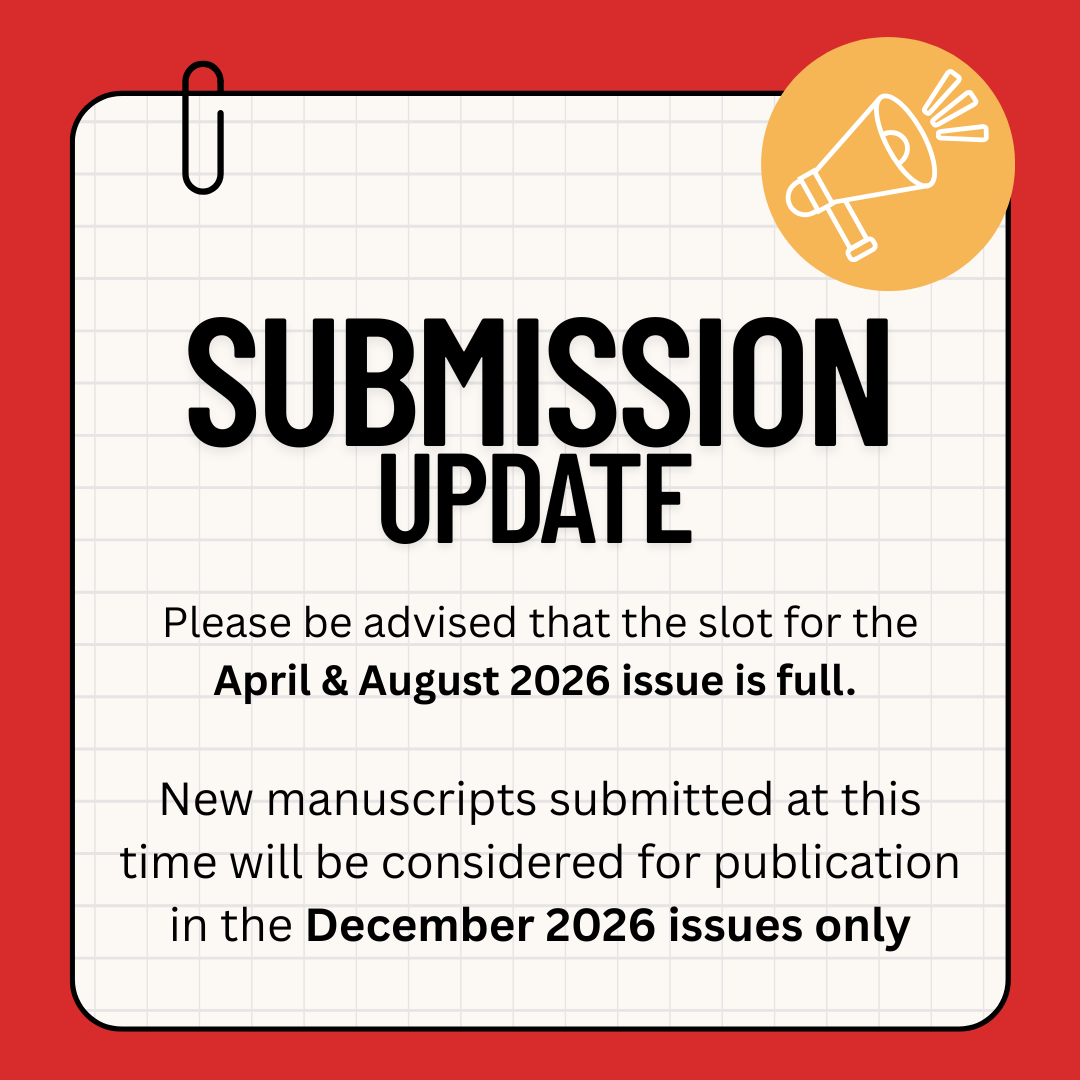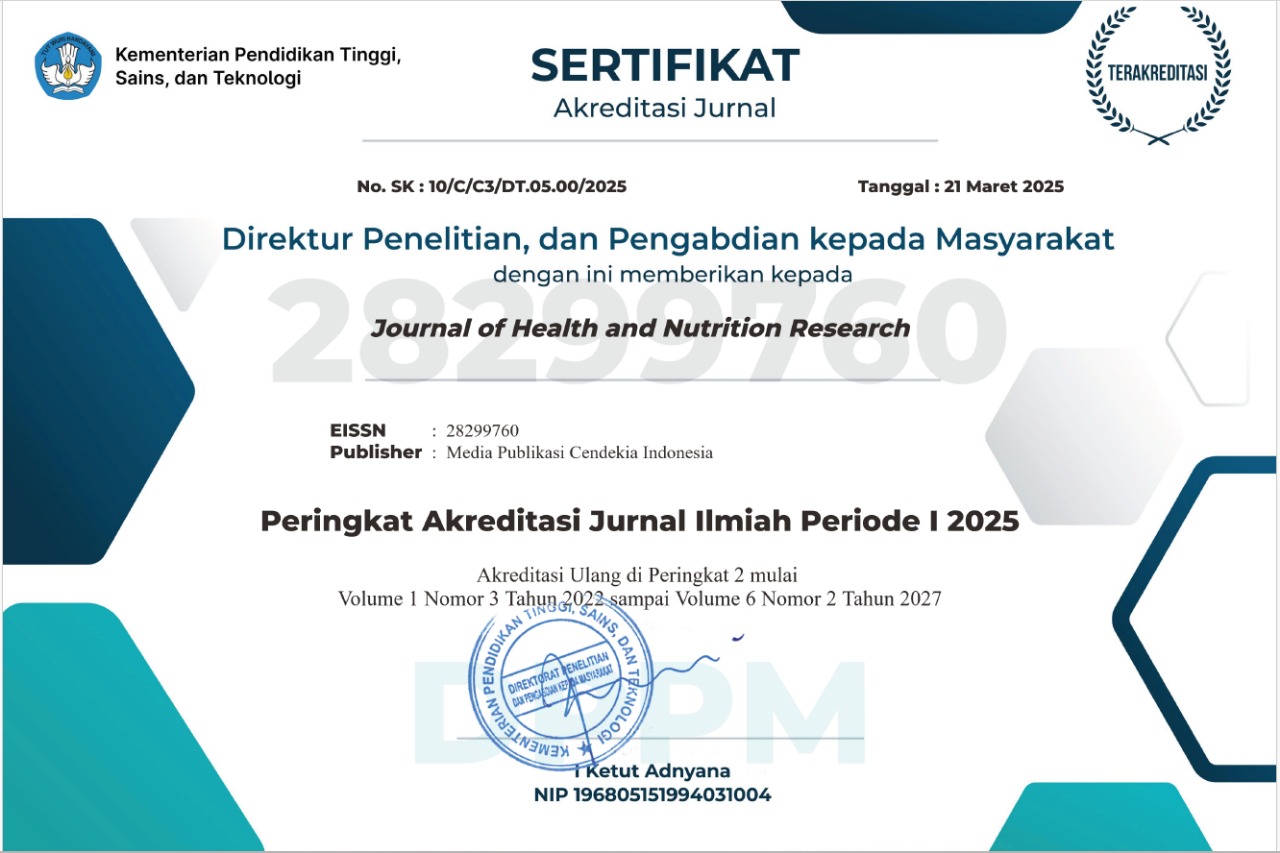Factors Influencing Health Care Satisfaction among Rohingya Refugees in Bangladesh: An Analysis of 2019 UNHCR Data
Keywords:
Bangladesh refugee camps, Education and health, Health services, Rohingya refugees, SatisfactionAbstract
Rohingya refugees from Myanmar in Bangladesh face significant challenges in accessing health services. This study examines factors that influence satisfaction with the quality of health care services in the destination country, Bangladesh. The secondary data from the “Rohingya Survey 2019,” which focused on social relationships, coping mechanisms, and views on relocation. The survey targeted 1,300 adults who arrived after August 25, 2017, with 1,277 respondents analyzed. Data were collected from March 1 to April 30, 2019, using quota sampling. Univariate, bivariate, and multivariate analyses, including binary logistic regression, were conducted to assess factors influencing satisfaction with health services. This study found that the majority of refugees were dissatisfied with health services. The key characteristics are female predominance among respondents, reliance on friends and neighbors for information, and dissatisfaction with the quality of education. All variables, including gender, news sources, perceptions of important figures, smoking habits, betel quid chewing habits, and satisfaction with education, were associated with satisfaction with health services. Multivariate analysis found that male refugees were 51% less likely to be satisfied with health services, refugees who received news from family were 69% less likely to be satisfied, and those who chewed betel quid were 30% less likely to be satisfied.
Downloads
References
Faye M. A forced migration from Myanmar to Bangladesh and beyond: humanitarian response to Rohingya refugee crisis. Journal of International Humanitarian Action. 2021 Dec 11;6(1):13.
Al Rousan T, Schwabkey Z, Jirmanus L, Nelson BD. Health needs and priorities of Syrian refugees in camps and urban settings in Jordan: perspectives of refugees and health care providers. Eastern Mediterranean Health Journal. 2018 Mar 1;24(03):243–53.
Islam S, Mozumder MK. Challenges to providing quality mental health services for forcibly displaced populations: The case of Rohingya refugees in Bangladesh. Asian Am J Psychol. 2021 Sep;12(3):234–40.
Missbach A. Stuck in camps, at sea and in illegality: dimensions of stuckedness endured by Rohingya refugees. In: Research Handbook on Irregular Migration. Edward Elgar Publishing; 2023. p. 168–77.
Missbach A, Stange G. Muslim Solidarity and the Lack of Effective Protection for Rohingya Refugees in Southeast Asia. Soc Sci. 2021 May 8;10(5):166.
Hilmansyah H. Analysis of the Threat of Social Conflict on The Arrival of the Rohingya Ethnicity in The Aceh Province Region. Security Intelligence Terrorism Journal (SITJ). 2025 Mar 7;2(1):99–111.
Missbach A. Facets of Hospitality: Rohingya Refugees’ Temporary Stay in Aceh. Indonesia. 2017;104(1):41–64.
Yunanda R, Fasya TK, Fariadi D, Kurniawati K, Rizki D, Aulia F. The Social Impact of the Existence of Rohingya Refugees in Aceh. Community : Pengawas Dinamika Sosial. 2024 Aug 11;10(1):129.
Marchetti F, Preziosi J, Zambri F, Tambascia G, Di Nolfi A, Scardetta P, et al. Health needs and perception of health care quality among Asylum Seekers and Refugees in an Italian local health authority: A qualitative study. Front Public Health. 2023 Apr 12;11.
Siddiq H, Alemi Q, Lee E. A Qualitative Inquiry of Older Afghan Refugee Women’s Individual and Sociocultural Factors of Health and Health Care Experiences in the United States. Journal of Transcultural Nursing. 2023 Mar 25;34(2):143–50.
Dumitrache L, Nae M, Mareci A, Tudoricu A, Cioclu A, Velicu A. Experiences and Perceived Barriers of Asylum Seekers and People with Refugee Backgrounds in Accessing Healthcare Services in Romania. Healthcare. 2022 Oct 29;10(11):2162.
Lebano A, Hamed S, Bradby H, Gil-Salmerón A, Durá-Ferrandis E, Garcés-Ferrer J, et al. Migrants’ and refugees’ health status and healthcare in Europe: a scoping literature review. BMC Public Health. 2020 Dec 30;20(1):1039.
Kohlenberger J, Buber-Ennser I, Rengs B, Leitner S, Landesmann M. Barriers to health care access and service utilization of refugees in Austria: Evidence from a cross-sectional survey. Health Policy (New York). 2019 Sep;123(9):833–9.
Haider S, Maheen A, Ansari M, Stolley M. Health Beliefs and Barriers to Healthcare of Rohingya Refugees. J Racial Ethn Health Disparities. 2023 Aug 10;10(4):1560–8.
Salim NA, Meyad SH, Sawair FA, Satterthwaite JD, Sartawi S. Satisfaction with healthcare services among refugees in Zaatari camp in Jordan. BMC Health Serv Res. 2021 Dec 26;21(1):507.
Papke RL, Bhattacharyya I, Hatsukami DK, Moe I, Glatman S. Betel Nut (areca) and Smokeless Tobacco Use in Myanmar. Subst Use Misuse. 2020 Jun 1;55(9):1385–94.
Dowla R, Goodman A, Akter S. Prevalence of Various Cancer-Related Risk Factors among the Forcibly Displaced Myanmar National Community, the Rohingya, in Bangladesh: A Preliminary Assessment. J Cancer Ther. 2020;11(05):251–64.
Rahman A, Biswas J, Banik PC. Non-communicable diseases risk factors among the forcefully displaced Rohingya population in Bangladesh. PLOS Global Public Health. 2022 Sep 27;2(9):e0000930.
Kapil N, Bhatnagar A, Alamgir M, Osmani AG, Haque M, Rahman SM. Communication and Community Engagement to Contain Disease Outbreaks and Improve Well-Being: Rohingya Refugee Response, Bangladesh. In: Communication and Community Engagement in Disease Outbreaks. Cham: Springer International Publishing; 2022. p. 169–92.
Zakaria M, Nachrin T, Azad MdAK. Evaluating the effectiveness of utilization of health communication interventions on sexual and reproductive health of the Rohingya women living in Cox’s Bazar refugee camp. Heliyon. 2022 Dec;8(12):e12563.
Shorey S, Ng ED, Downe S. Cultural competence and experiences of maternity health care providers on care for migrant women: A qualitative meta‐synthesis. Birth. 2021 Dec 6;48(4):458–69.
Griffin G, Ali M, Nau SZ, Riggs E, Dantas JAR. Accessing and navigating healthcare: A scoping review of the experiences of women of refugee background from Myanmar. Health Soc Care Community. 2022 Nov;30(6).
Siddique AB, Nath SD, Mohammad Rasel S, Roy C, Monim MM, Amin MZ. Unraveling patient satisfaction, associated factors, and dissatisfaction reasons in the provision of health care services for rural communities in Bangladesh: A cross-sectional investigation. Clin Epidemiol Glob Health. 2024 Sep;29:101724.
El-Bialy N, Aranda EF, Nicklisch A, Saleh L, Voigt S. No man is an island: trust, trustworthiness, and social networks among refugees in Germany. J Popul Econ. 2023 Oct 20;36(4):2429–55.
Page-Tan C. Bonding, bridging, and linking social capital and social media use: How hyperlocal social media platforms serve as a conduit to access and activate bridging and linking ties in a time of crisis. Natural Hazards. 2021 Jan 2;105(2):2219–40.
Gonzalez Benson O, Pimentel Walker AP. Grassroots refugee community organizations: In search of participatory urban governance. J Urban Aff. 2021 Jul 3;43(6):890–908.
Wojciechowska MD. The role of public libraries in the development of social capital in local communities – a theoretical study. Library Management. 2021 Feb 16;42(3):184–96.
Lau LS, Rodgers G. Cultural Competence in Refugee Service Settings: A Scoping Review. Health Equity. 2021 Mar 1;5(1):124–34.
Goldberg AE, McCormick N, Virginia H. Parenting in a Pandemic: Work–Family Arrangements, Well‐Being , and Intimate Relationships Among Adoptive Parents. Fam Relat. 2021 Feb 21;70(1):7–25.
Peters LER, Shannon G, Kelman I, Meriläinen E. Toward resourcefulness: pathways for community positive health. Glob Health Promot. 2022 Sep 22;29(3):5–13.
Centers for Disease Control and Prevention. Centers for Disease Control and Prevention. 2024 [cited 2024 Sep 16]. Social Determinants of Health. Available from: https://www.cdc.gov/public-health-gateway/php/about/social-determinants-of-health.html

Published
How to Cite
Issue
Section
Copyright (c) 2025 Sri Nurcahyati, Ayu Yuliani Sekriptini, Suyitno Suyitno

This work is licensed under a Creative Commons Attribution-NonCommercial-ShareAlike 4.0 International License.
Most read articles by the same author(s)
- Dyah Suryani, Suyitno Suyitno, Mohd Yunus, The Households Characteristics of Sufficient Water in Kyrgyzstan: An Analysis of The Multiple Indicator Cluster Survey (MICS) , Journal of Health and Nutrition Research: Vol. 4 No. 2 (2025)


















